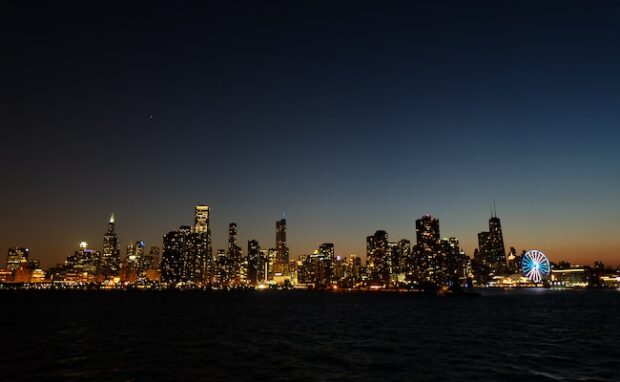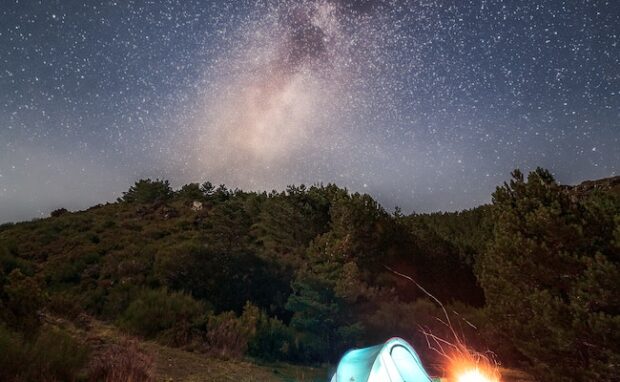Light pollution and the modern fear of losing dark skies
Countless stories depict heroes banishing the darkness with overwhelming light. However, our modern cities may succeed in eliminating the night skies forever, sparking a unique fear called “noctalgia” or “sky grief.” Urban areas worldwide emit so much light that we’ve made it difficult to see stars and heavenly bodies. Soon, we may never see them again due to light pollution.
Astronomy experts Chris Impey and Connie Walker found the night sky became 9.6% brighter annually on average. Also, a child born in 2023 may only see 100 out of 250 stars in a specific spot on their 18th birthday. Would you like your kid to only know stars as lanterns or parols?
Fortunately, we could restore the night sky to its former glory. Let’s start by elaborating on the surprising impacts of light pollution. Then, I will explain how you could help solve this modern problem.
What are the effects of light pollution?

DarkSky International is one of the nonprofit organizations that spread awareness about light pollution. Its website highlights how it harms human health, fauna, flora, and our heritage. The nonprofit said modern cities expose us to artificial illumination 24/7, increasing our risk for these health conditions:
- Cancer
- Depression
- Diabetes
- Heart disease
- Obesity
- Sleep disorders
They result from artificial light interrupting our circadian rhythm or biological clock. Our bodies react to blue light wavelengths abundant in sunlight, waking us during the day.
In contrast, darkness signals our bodies to sleep. However, the night became perpetually bright due to street lights, disrupting our day/night cycle. Constant artificial lighting also interrupts melatonin production.
It is a natural pigment that darkens the skin. More importantly, it produces antioxidant effects, induces sleep, boosts the immune system, and lowers cholesterol. Melatonin is also essential in maintaining our adrenal glands, testes, ovaries, pancreas, and thyroid.
Light pollution also disturbs our ecosystems because plants and animals have circadian rhythms, too. For example, it has caused many birds to crash into bright buildings.
Artificial lights have also caused birds to migrate too early or too late. That interrupts their mating seasons, causing their extinction. It has also caused many things we associate with nighttime to fade.
You may also like: Why poor air quality is a global concern
Have you ever wondered why you no longer hear insects or frogs during the night? Perhaps you miss seeing fireflies flutter under the moonlight? They are going away due to light pollution.
Lastly, this problem could remove the inspiration that night brought for millennia. Many have written our greatest works of art and literature after marveling at the heavenly bodies.
For example, stars inspired the Filipino Christmas lantern called the “parol.” However, future generations may struggle to understand its origin if the night sky becomes pitch black forever.
How can we solve light pollution?
You can do your part in protecting the night skies by lessening your artificial lighting usage. Here are some suggestions from DarkSky and the Durango, Colorado tourism page:
You may also like: Can display drones replace fireworks?
- Use LED lights instead of fluorescent ones to reduce energy use. However, you should opt for warm-colored bulbs. DarkSky says they have less glare than blue-rich white light.
- Turn off unnecessary outdoor lights. If Christmas is near, we could do our part by turning them off early.
- Also, keep your blinds and drapes closed so your lights don’t contribute to light pollution.
- Turn off lights when not in use.
Conclusion
Modernization has illuminated the night sky 24/7, spreading light pollution worldwide. Thus, it sparked a new fear called “noctalgia” or “night grief.”
Fortunately, we can do our part to protect the night by reducing our light usage. Otherwise, we may lose sight of the heavenly bodies that inspired us to achieve greater heights.
Let us ensure the Moon and the stars will be there to guide future generations toward their destinies. Learn more about the latest trends at Inquirer Tech.
Frequently asked questions about light pollution
What is light pollution?
Light pollution refers to our excessive use of artificial light, negatively affecting our health, animals, and plants. It ruins our day/night cycle, increasing our risk for diabetes, depression, and other conditions. Also, it interrupts animal mating and feeding cycles, causing extinction. Consequently, plants lose natural pollinators and die, too.
How does light pollution affect the climate?
Light pollution has become so destructive that it contributes to climate change. According to National Geographic, excessive artificial lighting emits so much heat that it makes climates warmer. Also, they interrupt plant growth patterns and reduce global flora. As a result, we may not have enough plants to keep our planet cool.
How does light pollution affect the economy?
Believe it or not, light pollution harms the global economy. A ResearchGate paper said the United States alone spends nearly $7 billion annually to power excessive lighting. Imagine spending that much money on light pollution that harms people and the environment!
